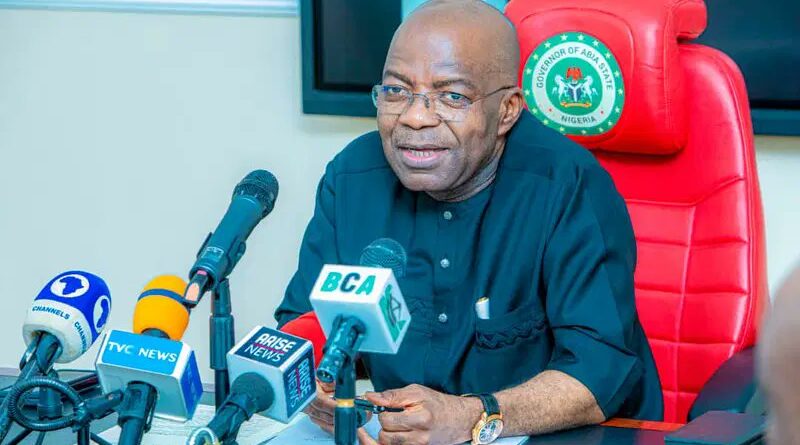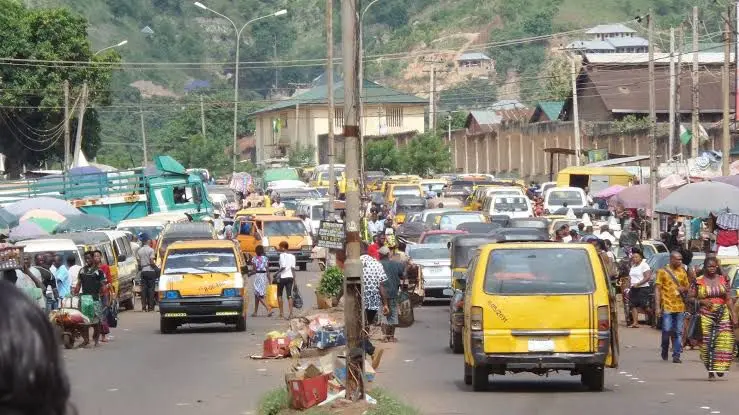Nigeria and other economies in Sub-Saharan Africa urgently need to create jobs for their growing population, experts at the International Monetary Fund (IMF) said on Monday.
The need for quick response to this challenge is pressing across the region, especially in fragile and low-income countries, said Athene Laws and Fathen Saliba, two economists at the African Department of the IMF.
The experts, who made the submission at an analytical corner at the ongoing World Bank/IMF meetings in Washington DC, noted that three main challenges must be tackled to address job creation concerns in the region: transforming informality, addressing firm growth barriers, and accelerating structural transformation.
“Subsaharan Africa hasn’t created enough jobs,” the experts echoed, highlighting the potential effects of a challenge at the heart of economic prosperity in the region.
Underemployment remains extremely high in the region, while public sector provides the most stable jobs. However, it doesn’t have the capacity to provide enough job opportunities for subsaharan Africa’s growing population, the experts said.
Unemployment
In Nigeria, one of the top three biggest economies in Subsaharan Africa, unemployment rate stood at 5.3 percent in the first quarter of 2024, representing a third consecutive increase since the second quarter of 2023.
However, data from the statistics bureau said the underemployment rate fell from 12.3 per cent in 2023Q3 to 10.6 per cent in 2024Q1, amid concerns over cost of living.
Nigerians need credible journalism. Help us report it.
Support journalism driven by facts, created by Nigerians for Nigerians. Our thorough, researched reporting relies on the support of readers like you.
Help us maintain free and accessible news for all with a small donation.
Every contribution guarantees that we can keep delivering important stories —no paywalls, just quality journalism.
In Ghana, where high cost of living and illegal mining (galamsey) that has devastated local water bodies remain topical issues, unemployment has touched 14 per cent.
The pictures remain gloomy in many other economies across the region, amid uncertainty and widespread migration of young people to more prosperous regions.
The IMF noted on Monday that in most countries across subsaharan Africa, formal jobs stood at 19 per cent; some informal jobs that pay well (upper tier informal jobs) are about 13 per cent; while lower-tier informal jobs represented 68 per cent.
Meanwhile, the economists at IMF disclosed that only 5 per cent use infomal jobs as stepping stone to formal jobs.
In the absence of job opportunities, young people take to crime and women face domestic challenges.
Breaking down barriers to private sector growth remains at the core of the challenge, the experts noted. In Angola, for instance, the experts said that one-third of formal jobs started unregistered.
Although firm creation rate is high across the region, firm growth remains constrained due to structural issues.
To address the challenges, economies across the region must look into transforming structure of their economies to create jobs, through initiatives, such as improving on old agricultural practices and shifting towards manufacturing.
While the transition is happening already, the experts said it is slower than what obtains in other regions and the countries across the region need to look at other options.
“There is no one route; the pathways differ across countries” said Ms Saliba.
Policy proposition
In its policy suggestion, the IMF urged countries across the region to “transform informality to formality”, by improving the structure of available jobs and providing better access to finance.
Earlier in the month, while speaking at the Hamburg Sustainability Conference, World Bank President Ajay Banga noted that job creation must be prioritised by governments across Africa.
“Creating jobs is mission critical… young people cannot have hope if they don’t get a job,” he said.
On Monday, as part of effort to create jobs, the IMF economists noted that Subsaharan African countries must address barriers to growth, develop local capital markets, prioritise crucial infrastructure such as electricity, and tackle corruption and redtapism.
“The international community has a vested interest in Africa’s success,” the experts said.
Support PREMIUM TIMES' journalism of integrity and credibility
At Premium Times, we firmly believe in the importance of high-quality journalism. Recognizing that not everyone can afford costly news subscriptions, we are dedicated to delivering meticulously researched, fact-checked news that remains freely accessible to all.
Whether you turn to Premium Times for daily updates, in-depth investigations into pressing national issues, or entertaining trending stories, we value your readership.
It’s essential to acknowledge that news production incurs expenses, and we take pride in never placing our stories behind a prohibitive paywall.
Would you consider supporting us with a modest contribution on a monthly basis to help maintain our commitment to free, accessible news?
TEXT AD: Call Willie - +2348098788999

















 English (US) ·
English (US) ·